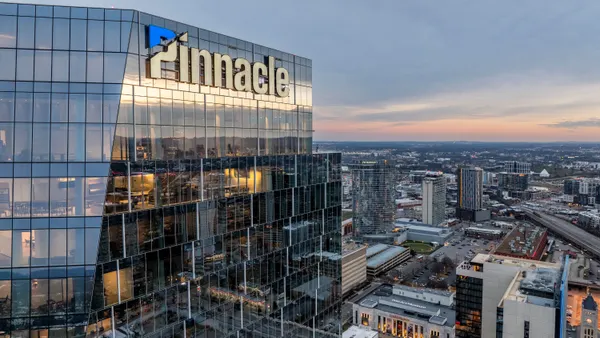Sens. Tim Scott, R-SC, and John Hickenlooper, D-CO, introduced legislation on Wednesday that would allow fintech lenders to participate in the Small Business Administration’s (SBA) flagship loan program by lifting a nearly four-decades old moratorium on issuing new Small Business Lending Company (SBLC) licenses.
The SBLC program, which was capped at 14 licenses in 1982, allows non-depository lending institutions, such as fintechs, to participate in the SBA’s 7(a) loan program.
"Our bipartisan bill will modernize the SBA’s primary loan program to help underserved small businesses grow and thrive," Hickenlooper said in a statement on Wednesday. "You shouldn’t need a big bank to get an SBA loan."
Last year, for the first time ever, fintechs were given direct access to one of the SBA's lending programs through their inclusion as direct lenders in the Paycheck Protection Program (PPP), the forgivable government-backed loans aimed to help small businesses weather the coronavirus pandemic.
After being kept out of the first several weeks of the program last year, fintechs’ eventual inclusion in the PPP allowed them a foot in the door during a time of crisis, a move many have hoped would result in permanent access to the SBA's flagship 7(a) program.
Ryan Metcalf, head of U.S. regulatory affairs at fintech lender Funding Circle, said the bill would allow historically underserved communities to access more loans, as well as ensure a greater number of lenders are available to provide government relief loans in the event of another economic crisis.
"When additional online lenders are permitted to offer 7(a) loans nationwide, more financial institutions will have the ability to invest in small businesses due to the reduced risk provided by the government guarantee," said Metcalf, who helped author the Expanding Access to Credit for Small Business Act. "The result would be younger and higher credit risk businesses will gain access to affordable credit; more rural small businesses will have easier access to more lenders; and lenders will be able to offer lower rates and longer terms to small businesses. Ultimately, this would cumulatively lead to a quicker, more equitable economic recovery and expansion for main street."
The bill comes as SBA Administrator Isabel Guzman has signaled a willingness to maintain fintech involvement in the SBA's programs beyond the PPP.
"Adoption of fintech across the banking sector ... is really critical," Guzman told lawmakers during her confirmation hearing in March. "I think expanding distribution for capital will improve access, and so I look forward to partnering with the lending institutions broadly to ensure that we can keep them engaged in SBA programs. This has been a record-high number of different lenders engaged in SBA than ever before, and I think we need to take advantage of that."
Metcalf said he expects traditional banks will be in favor of Scott and Hickenlooper’s bill.
"[I]t provides them with more origination and loan sales partnership opportunities with fintech and [Community Development Financial Institution] lenders," he said. "This includes the ability to purchase loans made in low- to moderate income areas, helping banks fulfill their Community Reinvestment Act needs.
Financial institutions without the capacity to run a 7(a) program can partner with these new lenders as Lending Service Providers (LSPs) to serve their customers and generate revenue opportunities, he added.














